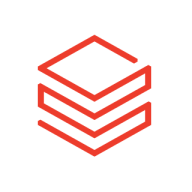

Find out in this report how the two Cloud Data Warehouse solutions compare in terms of features, pricing, service and support, easy of deployment, and ROI.
This reduction in both time and money resulted in real-time impact and significant cost savings.
For a lot of different tasks, including machine learning, it is a nice solution.
When it comes to big data processing, I prefer Databricks over other solutions.
This saves a significant amount of time, particularly for reports that would have needed around fifty people.
The ROI of using Tableau extends to its seamless integration across various platforms, as it's from Salesforce and thus not limited to any specific cloud provider.
Tableau is saving me time, money, and resources, which I would rate as ten.
Whenever we reach out, they respond promptly.
As of now, we are raising issues and they are providing solutions without any problems.
I rate the technical support as fine because they have levels of technical support available, especially partners who get really good support from Databricks on new features.
They provide quick email and phone responses and have Thai-speaking personnel.
There should be consistent standards for all users.
The technical support for Tableau is quite good.
The sky's the limit with Databricks.
The patches have sometimes caused issues leading to our jobs being paused for about six hours.
Databricks is an easily scalable platform.
Tableau is easy to use across various dimensions, whether on-premises or on the cloud.
The solution is fully scalable and performs well even with large datasets, provided there is proper supporting hardware.
Tableau is easy to scale.
They release patches that sometimes break our code.
Although it is too early to definitively state the platform's stability, we have not encountered any issues so far.
Databricks is definitely a very stable product and reliable.
The application hangs after continuous use due to the buildup of cache.
I rate the stability a five or six because Tableau updates very often with new versions or patches.
Adjusting features like worker nodes and node utilization during cluster creation could mitigate these failures.
We prefer using a small to mid-sized cluster for many jobs to keep costs low, but this sometimes doesn't support our operations properly.
We use MLflow for managing MLOps, however, further improvement would be beneficial, especially for large language models and related tools.
We cannot send the entire Excel file reports via email within Tableau.
The product owner should enhance its benefits or clarify its role.
It sometimes requires extensive investigation to determine why the data does not appear correctly.
It is not a cheap solution.
I believe that in terms of credits for Databricks, we're spending between £15,000 and £20,000 a month.
Power BI as a much cheaper alternative.
A license for 150 users costs around $17,000 USD per year.
Looker is known to be quite expensive.
Databricks' capability to process data in parallel enhances data processing speed.
The platform allows us to leverage cloud advantages effectively, enhancing our AI and ML projects.
The Unity Catalog is for data governance, and the Delta Lake is to build the lakehouse.
A significant feature for me is the real-time connection to data sources because it effectively manages large data sets.
Tableau serves as a stable dashboarding tool for higher management, aiding in quick decision-making.
Building hyper extracts and visualization capabilities make Tableau a robust tool for data analysis.
| Product | Market Share (%) |
|---|---|
| Databricks | 10.0% |
| Snowflake | 15.9% |
| Teradata | 8.4% |
| Other | 65.7% |
| Product | Market Share (%) |
|---|---|
| Tableau Enterprise | 6.2% |
| Microsoft Power BI | 8.9% |
| Amazon QuickSight | 3.7% |
| Other | 81.2% |


| Company Size | Count |
|---|---|
| Small Business | 26 |
| Midsize Enterprise | 12 |
| Large Enterprise | 56 |
| Company Size | Count |
|---|---|
| Small Business | 117 |
| Midsize Enterprise | 67 |
| Large Enterprise | 184 |
Databricks offers a scalable, versatile platform that integrates seamlessly with Spark and multiple languages, supporting data engineering, machine learning, and analytics in a unified environment.
Databricks stands out for its scalability, ease of use, and powerful integration with Spark, multiple languages, and leading cloud services like Azure and AWS. It provides tools such as the Notebook for collaboration, Delta Lake for efficient data management, and Unity Catalog for data governance. While enhancing data engineering and machine learning workflows, it faces challenges in visualization and third-party integration, with pricing and user interface navigation being common concerns. Despite needing improvements in connectivity and documentation, it remains popular for tasks like real-time processing and data pipeline management.
What features make Databricks unique?
What benefits can users expect from Databricks?
In the tech industry, Databricks empowers teams to perform comprehensive data analytics, enabling them to conduct extensive ETL operations, run predictive modeling, and prepare data for SparkML. In retail, it supports real-time data processing and batch streaming, aiding in better decision-making. Enterprises across sectors leverage its capabilities for creating secure APIs and managing data lakes effectively.
Tableau Enterprise offers powerful features for creating interactive visualizations, dashboards, and maps, including drag-and-drop functionality and easy integration with multiple data sources, promoting real-time collaboration and self-service analysis.
Tableau Enterprise stands out with its ability to create user-friendly, interactive visualizations, making it pivotal for business intelligence applications. Users benefit from its seamless connectivity and advanced analytical functions, facilitating data blending and storytelling. Despite a complex learning curve and high licensing costs, its features like geospatial analysis and efficient content distribution drive its indispensable value for data-driven insights. Enhancements in predictive analytics and support integration with machine learning tools further its capabilities across industries.
What are the most valuable features?Tableau Enterprise is widely used for business intelligence, supporting industries like healthcare, telecommunications, and finance. Organizations utilize it to analyze performance indicators, operational insights, and financial analytics, enhancing decision-making through interactive reports and real-time data integration.
We monitor all Cloud Data Warehouse reviews to prevent fraudulent reviews and keep review quality high. We do not post reviews by company employees or direct competitors. We validate each review for authenticity via cross-reference with LinkedIn, and personal follow-up with the reviewer when necessary.